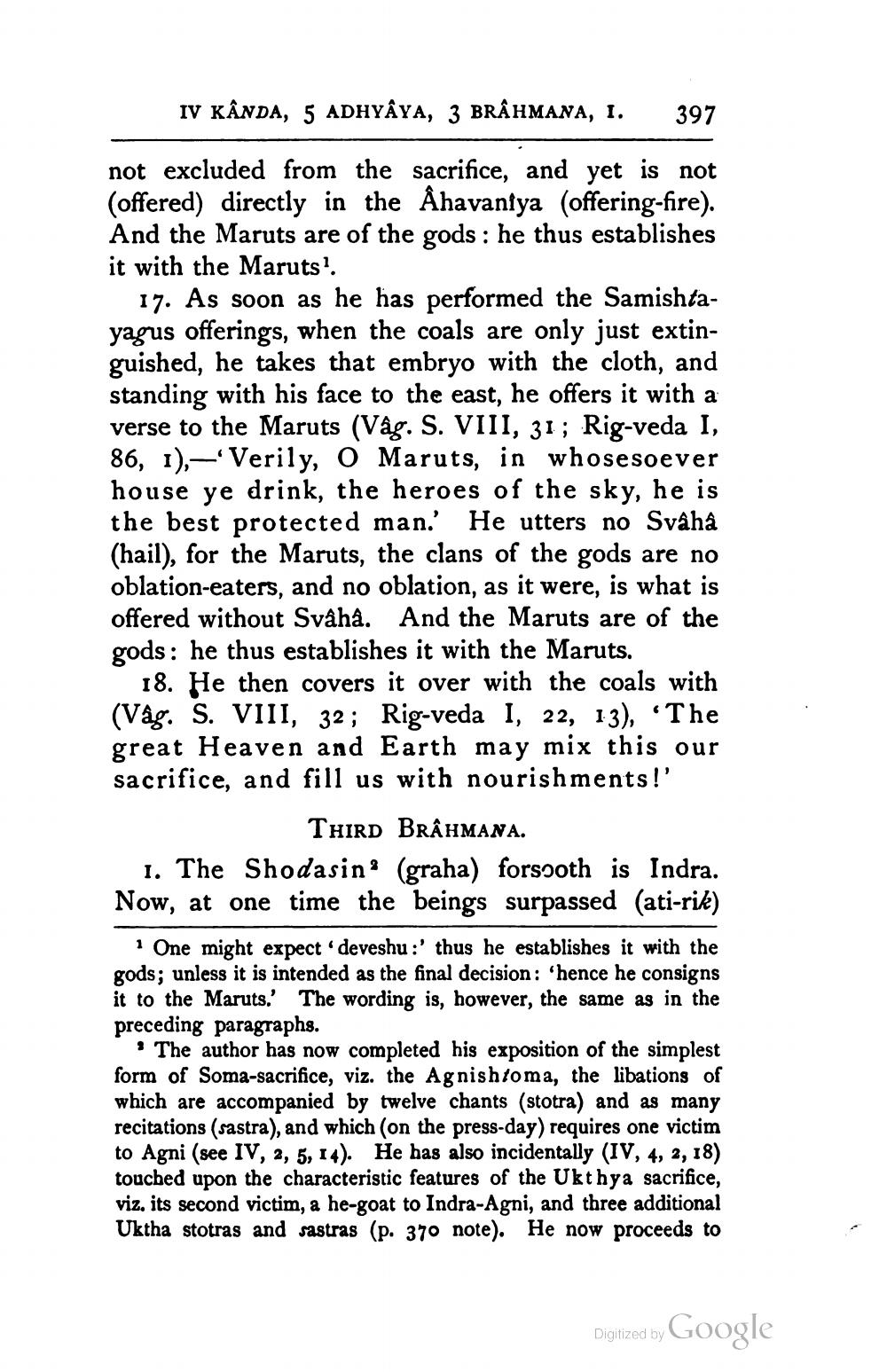________________
IV KÂNDA, 5 ADHYAYA, 3 BRÂHMANA, I.
397
not excluded from the sacrifice, and yet is not (offered) directly in the Åhavaniya (offering-fire). And the Maruts are of the gods : he thus establishes it with the Maruts?.
17. As soon as he has performed the Samishtayagus offerings, when the coals are only just extinguished, he takes that embryo with the cloth, and standing with his face to the east, he offers it with a verse to the Maruts (Våg. S. VIII, 31; Rig-veda I, 86, 1),— Verily, O Maruts, in whosesoever house ye drink, the heroes of the sky, he is the best protected man. He utters no Svâhà (hail), for the Maruts, the clans of the gods are no oblation-eaters, and no oblation, as it were, is what is offered without Svâhà. And the Maruts are of the gods: he thus establishes it with the Maruts.
18. He then covers it over with the coals with (Vág. S. VIII, 32; Rig-veda I, 22, 13), “The great Heaven and Earth may mix this our sacrifice, and fill us with nourishments!'
THIRD BRÂHMANA. 1. The Shodasin (graha) forsooth is Indra. Now, at one time the beings surpassed (ati-rik)
1 One might expect deveshu :' thus he establishes it with the gods; unless it is intended as the final decision : 'hence he consigns it to the Maruts. The wording is, however, the same as in the preceding paragraphs.
The author has now completed his exposition of the simplest form of Soma-sacrifice, viz. the Agnishtoma, the libations of which are accompanied by twelve chants (stotra) and as many recitations (sastra), and which (on the press-day) requires one victim to Agni (see IV, 2, 5, 14). He has also incidentally (IV, 4, 2, 18) touched upon the characteristic features of the Ukthya sacrifice, viz. its second victim, a he-goat to Indra-Agni, and three additional Uktha stotras and sastras (p. 370 note). He now proceeds to
Digitized by Google




